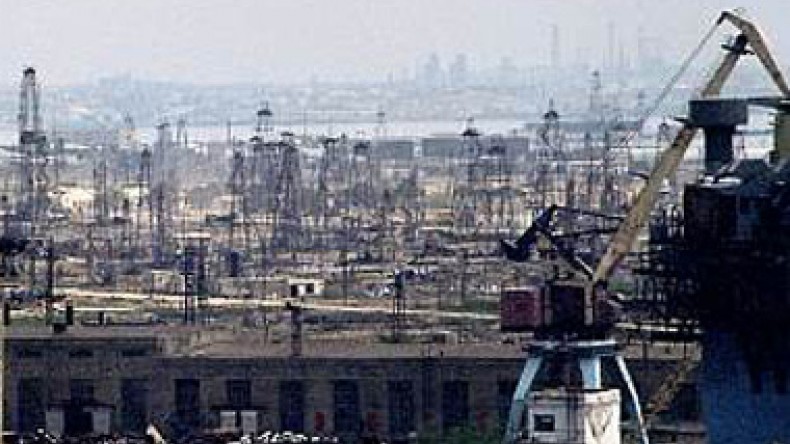
TOL: Azerbaijan - failed economic diversification
The president of Azerbaijan vows to wean the country off of oil revenues, but impressive growth seems driven by inefficient, corrupt reinvestment of petrodollars, reads the article published on the website of the organization of improving the skills of media in former Soviet Union countries Transitions (TOL).
According to the article, the president of the country Ilham Aliyev claims that if in previous years Azerbaijan mainly depended on oil and gas prices, currently they make 40% of the GDP. But experts remain skeptical of the official statistics on economic growth and the prospects for Azerbaijan's national development concept, “Azerbaijan 2020: Look Into the Future,” the main thrust of which is economic diversification. According to analysts when prices went from $100 per barrel last June to $55 by the end of December 2014, the true level of dependence of Azerbaijan on this sector was revealed.
TOL writes that the UN made a report on Azerbaijan's post-2015 development which noted that despite achievements, its continued dependence on oil leaves it precariously tied to oil production and global prices of it. The government now says the priority sectors for development are the information and communications industries, non-oil industries, agriculture, and tourism. But it is not the first time the government makes such statements.
“What the strategies reveal is more of a wish list than actual policies. They are mostly populist, not result-oriented programs; they don't show what we will achieve as a result of particular state funding or action in a particular area. As a result, we can't see how efficient a state policy is and why this or that result could not be achieved,” explains Azerbaijani economist Azer Mehtiyev, co-author of a 2012 assessment of the country’s diversification policy for the National Resource Governance Institute.
Mehtiyev, who is also chairman of the Center for Support of Economic Initiatives, claimed that official statistics of non-oil development are somewhat inflated and even manipulated. While the government claims the non-oil sector accounts for 60% of GDP, most of that is from the investments allocated from the state budget to big companies – and in non-transparent ways, with the money partially appropriated and then again re-invested in particular for purchases of overpriced equipment.
“The majority of these enterprises are not competitive and not export-oriented. Using close relations to powerful people, these companies drive out similar imported goods from the domestic market by unfair methods and mostly survive thanks to domestic consumers and state orders,” Mehtiyev said.
As it is noted in the article, Azerbaijan still suffers from a legacy of bureaucratic corruption. Economic analyst Rovshan Agayev wrote in his blog that “72 percent of export revenues in 2014 were received by the government, 23 percent by state-funded companies and a few oligarch groups.” Much of the country's economic activity is controlled by a few large family holding companies with links to powerful people, including the clan of the president.
The report also refers to the employment of Azerbaijan. “Oil reserves alone have done little to improve decent employment and income generation opportunities for large sectors of the population. This sector represents only 1 percent of total employment. What's more, inequality in living standards and opportunities is increasingly apparent between regions and population groups,” UN reports.
As it is noted, although by 2019, Baku may boast the world's tallest building, 189-floor skyscraper, 39 % of the country's labor force is grounded in agriculture, and 47% of Azerbaijan's population (and 70 %of its poor) live in rural areas.
“The sector faces weaknesses in the legal and regulatory system (quality standards, resolution of contractual disputes), infrastructure provision (irrigation, availability of secondary roads), and in low availability of credit,” the report reads.
The government is channeling money to large farms owned by oligarchs through the National Fund for Entrepreneurship Support. The economist Natig Jafarli, executive secretary of the opposition REAL movement, in his turn says that Azerbaijan remains the only country in the South Caucasus outside the WTO.
Related:
Zerkalo: Oil prices fell sharply; budget troubles possible in Azerbaijan
Azerbaijani Minister cheating Cabinet: In reality, oil production in country has declined
Newsfeed
Videos






























